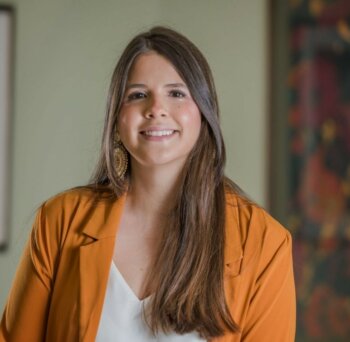Paul Sullivan reveals 7 steps to achieve financial prosperity
American writer and columnist for The New York Times, who came to Chile in the framework of a regional conference organized by AFP Capital -a company SURA Asset Management Chile- reveals habits, visions and practices that lead people to the true financial health.
Tuesday, June 7, 2016. Over the last decade, the writer and columnist for The New York Times , Paul Sullivan, has lived among Americans who enjoy the greatest economic prosperity, from whom he could learn how they save, spend and invest their money. His book, "The Thin Green Line: Money Secrets of the Super Prosperous" , reveals the secrets on how to make better financial decisions, and how to avoid the hidden dangers about saving and spending. While in Chile within the framework of the regional investment conference "The keys to use your money well and make your savings grow" organized by AFP Capital -a company SURA Asset Management Chile- Sullivan shared his experience about building true wealth in order to improve the standard of living.
On this regard, Eduardo Vildósola , general managerAFP Capital, said that "part of the commitment of AFP Capital is to accompany our customers with our expert advice. Consequently, we have implemented this conversation room." He also added that "Sullivan is a great reference when we talk about our goals, our dreams and our future. Through his talk, he will help us understand the keys to good advice and the importance of saving."
Between wealthy people and those who are only rich, Sullivan draws a thin green line that separates "the right side of the green line, wealthy people, who live in financial comfort, achieving balance of their accounts. Under this line, on the other hand, there are the rich, that is, those who can have lots of money in the bank, but their lifestyles are so extravagant that leave their finances in a fragile state," says the noted columnist.
So how do you get to be wealthy? Sullivan gives us the keys:
1. Allocate money to fictitious buckets: Instead of thinking about having money as a compact mass, it will be easier to make financial decisions if people put their money in different fictitious buckets, designed for personal expenses such as rent, food , savings, travel, etc., which allows achieving more discipline in terms of spending and saving.
2. Changing behavior towards money: Many people without assets thinks the key to getting rich is generating lots of money. But, athletes and movie stars receive five and ten million dollars a year, but at 45, they are broken. What you see is the money they have made, but what you don't is the choices they have made. Prosperous people are aware of risks and create contingency plans. Save and enjoy a good quality of life.
3. The status should not take over lifestyle: Sullivan claims that the rich and the poor who are on the other side of the green line, that they rely too much on borrowing for things they do not need and cannot afford such as clothing , trips and expensive cars, dinners, student debt and homes too expensive for their income. He recommends a mixture of discipline with occasional indulgence. This is a balancing act and, in turn, the key to being on the right side of the thin green line.
4. Do not get stressed about taxes: Columnist says a wealthy person will go to an accountant or financial advisor to identify the best ways to minimize their tax burden in the year. The difference will be small year to year, but it will be worth after the decades.
5. Learn how to control expenses: Beyond the basic needs like food and health care, spending can be controlled. The problem arises in finding the right way to spend between what you need and what you want. Spending is often seen in pathological terms, as a compulsion to buy things we do not need or amass money in unhealthy ways. A good strategy is to refrain yourself in the very early periods of life and increase spending options later.
6. Talk about your spending plans: Talking about money is inherently stressful. The way to change thinking about money and wealth is difficult and takes a long time. However, people could set different thoughts about money, if they talk about their spending plans instead of their budget. So, people would enjoy a style of safer and less stressful and could choose to be on the right side of the thin green line, regardless of how much money they own.
7. Be careful when investing in the stock market: People with few resources try investing aggressively in order to make large amounts, but they end up losing much more than they can take. Best thing is to diversify the portfolio with low commissions and a positive yield year after year. And what people and their advisors need to do in order to be on the right side of the thin green line is to avoid three things that can ruin an investment plan: optimism, confidence and excessive self-confidence.
After giving his first conference in Santiago and Concepcion, Sullivan will travel to Antofagasta, where he will make his talk tomorrow June 8 and finish on June 9th and 10th in Vina del Mar and Punta Arenas, respectively
To learn more about Paul Sullivan, visit their websitewww.pauljsullivan.com
About AFP Capital
AFP Capital is part of Grupo SURA. In Chile, it operates in the market of pensions, insurance, mutual funds, and stocks. As of March 2016, AFP Capital has a total of 1.8 million members, ranks 4th in the market and manages USD 32.7 billion in AUM.
Acerca de SURA Asset Management
SURA Asset Management is a Latin American company with operations in the areas of pensions, savings and investment in Mexico, Peru, Chile, Colombia, Uruguay and El Salvador. It is a subsidiary of Grupo SURA and, additionally, it has four shareholders who own a minority stake: the International Finance Corporation (IFC), member of the World Bank Group; Bolivar Group, Bancolombia and the Wiese Group. As of March 2016, SURA Asset Management has a total of US$ 109.1 billion in AUM, owned by 17.8 million customers.
* Customers and AUM include AFP Protection in Colombia and AFP Crecer in El Salvador, although not controlled companies, SURA AM has a significant stake









